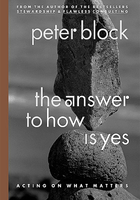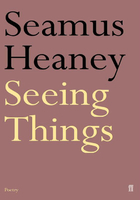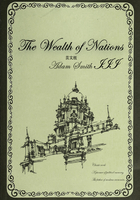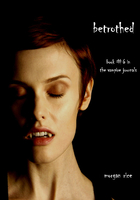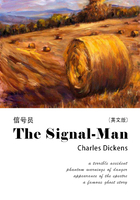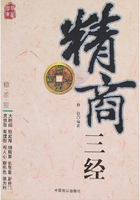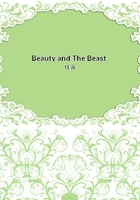To Josephine and Steven
The coffin stuck fast at the angle of the garden path and the gateway out into the road. The undertaker's men shunted to and fro, their hats knocked askew by low branches, their topcoats showered with raindrops from the hedge. The mourners halted around the front door and waited in silence. Birds sang effusively. At last the men managed to pivot the coffin on the gatepost and proceeded to the waiting hearse. The coffin was loaded. The mourners straggled out into the road and hesitated, unwilling to commit themselves to the attendant limousines.
Louise said, 'It's daft using cars to go such a short distance. At least we could have squashed into one, surely?'
There were two Daimlers. Helen and Edward got into the first, the four Dysons into the second. First time I've ever ridden in one of these, thought Helen. The last too, let's hope. They moved off at walking pace, past the Britches, radiant still with birdsong, past the builders' yard where Ron Paget, heaving planks of timber from the pick-up, suspended the operation and stood in respect, his eyes lowered. Helen nudged Edward: 'The old rogue–look at him.' Edward nodded. He said, 'At least he's not coming to the church–I wouldn't have put it past him.' Now they were passing the shop, where the Birds Eye van driver continued to lift out cartons without looking up. From within, faces watched furtively. Two women with prams paused, tucking themselves into the wall as the cortège went by. A small child pointed, questioning. They are having to explain, Helen thought. About deaths, funerals. Probably they will dodge the issue with distractions–an iced lollie, a sweetie. All the same, mother has disrupted the lives of others, just a little, for the last time.
Now they were at the church, unloading. The coffin, the flowers, the mourners. Through the lych-gate, along the path, a halt at the door to make adjustments before entering. Two of the undertaker's men were young, Helen noticed; what a very curious choice of occupation. Earlier, she had looked out of the window at Greystones and seen one of them filling in a football coupon while they waited in the hearse. Now, their faces were composed into expressions of noncommittal sobriety.
'You three should go in first,' said Tim Dyson. 'I'll follow with the children.'
Only two of the family wore black. Tim's suit was a dark pinstripe but Edward's was green, shiny around the seat and elbows, brought out for school speech days and probably twenty years old. Helen had put on her camel coat; the late May morning was quite cold and she felt the coat to be more subdued than her maroon suit, the only other garment suitable for a formal occasion. Louise was in a hotchpotch of unashamed colour and pattern. The two adolescents, alone, were appropriately funereal, clad from head to toe in black leather.
There were twenty or thirty people in the church. The front pew had been left empty. The family shuffled into it. Helen, between her brother and sister, observed the coffin, which had been placed in the aisle just below the steps to the chancel.
It seemed, now, much too small. Helen thought of her mother's stocky form, eyed the coffin, and could not imagine her squeezed into it. She gazed at the varnished wood and the brass handles and waited to hear cries of protest and complaint. She half expected to have to rise to her feet and set things right. Glancing at Edward, she knew that he was thinking exactly the same.
'Let us pray…'
Helen sank obediently to her knees. She said, O God, now that she is Thine rather than mine, do something about her. If she was created in Thy Image, then the system is an imperfect one.
'We consume away in Thy displeasure: and are afraid at Thy wrathful indignation…'
No, not mother. She wasn't much more of a Christian than I am. A token one, being a natural conservative. But I doubt if she ever gave a thought to Thy displeasure, any more than to anyone else's.
The service proceeded. The congregation sang a hymn, creakily. Louise and the children were silent; Edward and Helen moved their lips; Tim Dyson gave tongue firmly in a light tenor. Helen allowed herself a glance sideways and backwards to see who was there. Expected faces. Village faces, more distant relatives, Doctor Taylor, someone middle-aged who must be Mr Carnaby from Carnaby and Proctor, solicitors, to whom Helen had spoken on the phone but had not met. Dorothy Glover, at eighty, had not had friends. Indeed she had not had many at sixty or at forty or even, perhaps, at twenty. Helen could think only of someone she did voluntary nursing with during the war, who sent Christmas cards, and a woman who shared her interest in a mystical form of healing involving a black box with a lot of wires and buttons, with whom she corresponded.
Mother was not a nice woman. I have always known that, and I can say it, because I am her daughter and so in the nature of things came nearer to loving her than anyone else ever did. As did Edward. Louise's attitude is rather different, for various reasons.
Louise, right now, appeared to be suffering. Her face had become contorted; she was reaching for a Kleenex with which she scrubbed both eyes, angrily. As the hymn ground to its end she hissed to Helen, 'Bloody hay fever! It's those blasted flowers. Why did we have to have them?'
'Because they were sent.'
The flowers were rather awful: gladioli and enormous white daisies that looked artificial, and tightly budded roses fanned out behind windows of cellophane. And a couple of wreaths of shiny, hard-looking leaves. These offerings had ridden in the hearse and were stacked now outside the church door. Helen hoped they would not be brought back to the house: she was vague about what the etiquette was here. She longed to be rid of the flowers, of the appalling hours that loomed in which she must dispense hospitality and talk to people, of the whole disagreeable day. She simply wanted to get on with life, which would now be different. She wanted, quite dispassionately, to see what this difference would be. She was also extremely tired. Her mother had died indignantly and demandingly. Neither she nor Edward had had much sleep for quite a while.
And out now into the churchyard, trailing behind the coffin. The hole; the pile of fresh-dug earth. Oh God, thought Helen, this is too awful. Why isn't she being cremated? She is not being cremated because she specified that it should be like this. All in black and white, it appears. Burial in the churchyard of St Peter's, Long Sydenham, in a plot in the far corner near the big sycamore that she laid claim to several years ago, apparently–after, it emerges, a row with the rector that none of us knew a thing about. Now I know why he's been giving us funny looks for so long. So mother envisaged us all here, gathered round staring down in this ghastly way, looking at anything rather than each other, wishing they'd get on and get it over. You could have spared us that, mother.
Earth to earth, ashes to ashes, dust to dust. The words, in fact, are beautiful–the rhythms, the resonance. The meaning is another matter, for us unbelievers. Mercifully. Eternal life is an appalling idea, especially in mother's case.
And that, at last, was that. They could start to turn away, look at each other, they could leave her there under the sycamore and go. And now, damn and blast it, Helen feels tears prick her eyes, surge up, begin to trickle–and she looks at Edward and sees that he is the same. They both scowl and furtively dab. We can't leave her here, thinks Helen, we can't just put her in there and leave her. Mother.
But they can. And do. She is dead. Helen thinks, almost for the first time, mother has died. She is not here any more. Incredulous, she searches the group around the grave: Edward, Louise, Tim, Suzanne and Phil. No mother, any more.
'I thought they'd never go,' said Louise. 'Cousin Phoebe–may I be preserved from cousin Phoebe, now and for ever. Who was the good-looking bloke with the silver hair?' She stood at the drawing-room windows, open into the garden, sniffing and mopping her eyes. 'Oh those bloody flowers…'
'Surely,' said Helen, 'there must be some flowers in Camden?'
'Not a lot. Anyway florist ones are worse, for some reason. Was he the solicitor?'
'Yes. He's writing to us all. About the Will.'
'Oh, all that bumph…' said Louise vaguely. 'I suppose you wouldn't think of selling the Britches now? Make this place a bit more comfortable? It's perishing cold, as usual–frankly I don't know how you endure it.'
'Of course we're not going to sell the Britches,' said Edward.
They stood at the window, the three of them, and looked into the garden, on which rain now fell once more, after a tactful intermission for the funeral. It was defiantly unkempt; the lawn was a hayfield, the yew hedge drooped almost to the ground, the only surviving plants were vigorous shrubs and a few creepers swarming up above the general level of growth. None of them saw this, since it had been ever thus.
Louise saw fuming pollen, and longed for the tarmac of North London. Helen saw their mother, thick-set,–irritable, wearing brown corduroy, stumping across the grass with a query or an order on her lips. Edward saw a flycatcher, a pair of great tits and a collared dove. He looked for the flycatcher's mate, and wondered where the nest was.
They did not look like siblings. Helen and Edward, at fifty-two and forty-nine respectively, were not physically alike though they shared a certain style: Edward's shiny suit, Helen's rather unbecoming dress, obviously chosen without interest or prolonged thought. Edward was fair, thin, blue-eyed, and slightly stooping; Helen was shorter, brown-haired and fresh-faced, a woman who would be unremarkable in a group–only a second glance would reveal distinctive features: the bright eyes, the neat set of the nose. Louise, ten years younger, seemed of another generation and culture–her clothes raffish but also metropolitan, her hair unruly but tinted with salon highlights.
'Of course not,' said Louise, turning from the window. 'I never really imagined you would.' She patted Edward's arm. 'You'd feel uncomfortable being comfortable, wouldn't you? I'll help you wash up and then we'd better push off. Where are the others?'
'Taking glasses into the kitchen,' said Edward. 'Don't bother about the washing-up.'
Louise flung herself into a chair. 'All right. Maybe the kids'll do it. Wonders never cease.'
Helen picked up a plate of uneaten bits and pieces and took them through to the kitchen, where Tim Dyson stood looking with distaste at the crammed sink. It was a large, low ceramic sink, of the kind more often seen nowadays in a garden, planted with alpines. Quite possibly Tim did not recognise it as a sink, being accustomed to stainless steel. He always avoided the kitchen at Greystones; in fact Helen could not remember having seen him in there before. Normally, he kept to the drawing room and the dining room while domestic chores were being undertaken; he had not spent a night in the house for many years. Louise, during her mother's illness, had visited on her own.
The children–it was hard to think of them now as children, given their appearance, but fifteen and sixteen is more child than adult–were eating sausage rolls. Suzanne swallowed quickly and said, 'I'll wash, Helen–I don't mind.'
'Don't bother. We'll do it when you've gone. I think Louise wants to be off.'
Suzanne's metamorphosis was less startling than Phil's. Her hair stuck up spikily from her scalp in a way that seemed to defy gravity, her eyes were black-rimmed and there was a general impression of leather and metalwork. Phil, though, was almost unrecognisable. Helen's first reaction had been that someone had followed Louise and Tim into the house, then that Louise had let Phil bring some undesirable friend, that it was too bad of Louise, that he certainly couldn't be allowed to come to church, and at last, with pure astonishment, that this was Phil. He too was black-leathered and slung about with chains; his boots had spurs; there were chrome studs all over his back. It was his head, though, that startled most: the shaven scalp, the jet-black crest with streaks of emerald. Helen, punch-drunk with strain and exhaustion, had been on the edge of hysterical laughter. Neither Louise nor Tim had apparently thought the matter worth comment. Presumably they were so used to it. Helen had not seen either of the children for almost a year, she realised. A year is a long time, in more eventful lives. Louise and Tim led eventful lives. All Louise's phone calls were catalogues of activity and disaster; they were both always over-worked, over-stressed, on the brink of startling achievement or notoriety, and plagued by minor illness. Louise had hay-fever, cystitis and migraine; Tim had high blood pressure and sinus trouble. They were always in need of holidays for which they could not be spared. Louise worked for a firm of design consultants; Tim was in advertising. Long ago, Louise had been Helen's baby sister–adorable, charming, vulnerable, to be looked after and protected. This Louise seemed very far away and inaccessible now: from time to time, though, she surfaced, weeping over the telephone of betrayals, impositions and the cruelty of fate. More often, the Louise of today scolded Helen for conservatism, retrenchment and, above all, for not standing up to their mother. 'I live with her,' Helen used to say. 'You don't. That is the difference.'
Louise got out, as she put it, when she was seventeen. She had a series of rows with Dorothy and flounced off to art school, where she conned the authorities over the question of parental consent and support. There was more trouble. Eventually Dorothy gave in, reluctantly and vociferously, and Louise, from then on, was at one remove from Greystones, returning for Christmas and the occasional weekend, an unruly emotive draught of alien worlds. 'You and Edward can't just stay here for ever,' she said, each time. 'I mean, for God's sake, Helen, you're thirty…' 'I'll have to see what turns up,' Helen would say.
And in the event nothing did. Or not enough.
When the Dysons had gone Helen and Edward got down to the washing-up. Edward stooped over the sink–always inconveniently low–while Helen dried. Helen would have preferred to be left to deal with the mess on her own, in which case she could have brought out her illicit bottle of Fairy Liquid, but Edward would have been hurt to be shooed away at this moment. He wanted to talk. A scum of grease floated on top of the washing-up water; the dishes were slimy. Edward, an ardent conservationist, ignored the fact that detergents had been biodegradable for fifteen years. Lurid still in his mind's eye were the foam-packed rivers of the sixties, the rafts of dead fish, the blighted vegetation. Detergent never disgraced Greystones, or at least none that Edward knew about.
He said, 'How did Phil's hair get like that?'
'It's dyed, I suppose.'
Edward pondered. 'He seems a perfectly nice boy still. What an awful day. The bit in the churchyard was worst of all.'
'Yes. Do scrape that plate before you wash it. Shut up, Tam!'
Tam, Edward's rough-haired white terrier, squatted in the middle of the floor moaning with lust. He was a dog of unassuageable greed. Edward looked down at him, and then at the table, on which was a dish piled with sausage rolls and vol-au-vents. He said, 'Would we eat these, do you think?' Without waiting for an answer he slid two sausage rolls and a chicken vol-au-vent into Tam's bowl. Helen said nothing. They looked at each other, both realising that this had never before been done openly and unashamedly. Tam, as though in recognition that from now on things were going to be different, belched with roomy satisfaction. Dorothy had fought, for forty years, a vigorous and vindictive campaign against Edward's animals, from the kitten smuggled in when he was a schoolboy to the official but resented dogs of later years.
'Now I feel guilty,' said Edward. 'Is it always going to be like that?'
'That's what we're going to find out, I suppose.'
Edward, dabbling inefficiently in the murky sink, said 'I've never seen these plates before, where did they come from?'
'They were a wedding present of mother's, I think. We never used to use them, but I had to get out everything for today, or there wouldn't have been enough.'
As it was, nothing went with anything else, a medley of glasses, cups, plates surviving from once complete sets. Chipped cups, rogue saucers without a partner, pieces of cloudy pre-war Pyrex. 'There is absolutely nothing at Greystones that is nice to look at,' said Louise once, in a fit of rage, and Helen, dispassionate and not caring one way or the other, could see that she was absolutely right.
'Actually,' said Edward, 'they're rather pretty.' He held the plate clear of the sink to inspect it and it at once slid from his fingers to crash into several pieces upon the tiled floor.
They scrabbled for dustpan and brush, bumping into each other. Edward, assembling the bits on the draining-board, said anxiously, 'Isn't there some process for mending things like this? Riveting or something?'
'Why bother?' said Helen.
'But…' He looked at her. 'No. I see what you mean. All the same…' He stacked the pieces on the shelf beside the Coronation biscuit tin where, Helen suddenly saw with awful clarity, they would stay for the next five years.
They finished clearing up and went back into the drawing room. It was early evening now and the wet garden glinted in the low sunshine. Beyond it was the shaggy mass of the Britches and above the blackbirds and robins came the shrill whine of a chain-saw in Ron Paget's yard. The mantelpiece clock struck six and the chain-saw ceased abruptly.
Helen watched him walk towards the Britches. She knew exactly where he would go. He would sit on the fallen tree-trunk somewhere in the midst of that muddle of vegetation, doing nothing. He would come back in half an hour or so, apparently in some way renovated.
The village, at the outer rim of the Cotswolds, was also on the edge of notability. It was not one of those places that people tell each other they mustn't miss. The church was good but not exceptional. There was a respectable acreage of limestone, mullioned windows and drip-moulding but few single buildings of any distinction. There was nothing much to take a photograph of. Nor was there any antique shop or anywhere selling country jams, dried flowers and basketry from Hong Kong. The village store was a small supermarket and sold food only, rather expensively and of second-rate quality. Most people shopped ten miles away on Saturdays, by car.
Most of them also worked ten or fifteen miles away. They worked in offices and hospitals and shops. There were a few schoolteachers and a scattering of retired people, the rector and his wife in a new Barratt's Executive Home and an industrialist and his family in the Old Rectory. Sociologically classified, they would have come out as preponderantly A's and AB's with a sprinkling of C's; council housing had been kept to a minimum in Long Sydenham and what there was was mainly built before the war. The Glovers, Edward and Helen, and–hitherto–Dorothy, were presumably AB or thereabouts, by occupation (Edward taught, Helen worked as a part-time librarian). In terms of income and life-style, though, they were a bit of a puzzle, to the rest of the village, at any rate.
Within the village wealth was unequally distributed. Of course; it always is. There were the Hadleys at the Old Rectory who were so very much richer than everyone else that they were beyond competition, outside the fray. Their sleek cars, Mrs Hadley's even sleeker hunters, the rumoured house in the West Indies and yacht at Fowey were like the attributes of gods, only to be expected. Beneath them, nearly everyone else jostled within an income band narrow enough to allow for plenty of resentment, aspiration and emulation. The matters at issue were housing, cars, electrical and electronic appliances, holidays and children's schooling–probably in that order. Right at the bottom were those poor enough to be immune from competition, concerned only with survival. There were not many of these, Long Sydenham being geographically fortunate: a handful of old age pensioners, a couple of large families (considered feckless), a single parent (ditto) and a few unemployed, most of whom were very young. While none of these were in danger of starvation, they were nevertheless obliged to contemplate daily the lavishness around them, from the Hadleys' Mercedes gliding past their door to the five pound box of chocolates in the village shop, almost equally inaccessible. The advertisements on their television screens made certain that they should be in no danger of forgetting the range of consumer goods available and the urgency and intensity of normal need for these things.
The Glovers were a problem, where wealth status was concerned. The house, one of the largest and–at least potentially–most valuable in the village, put them in one category. So did their accents and their education; old Dorothy's self-confidence was generations deep. But patently there was no loose cash swilling around at Greystones. You only had to look at their cars, at the furnishings within (nothing new within sight, no central heating, no dishwasher, only the most decrepit old twin-tub washing-machine); none of them was known to go abroad at all. As for their clothes…
The failure of the Glovers to fit properly into a category troubled the village, which liked to know where it was with people. The inhabitants of the Barratt Executive Homes did not know whether to defer or to be kindly patronising and ended up doing both, disconcerting themselves. The Hadleys were so set apart by wealth that, like old-fashioned aristocrats, they saw everyone else as a featureless proletariat and were uniformly bland to everyone; they would never have noticed the Glovers. The older inhabitants of the council houses had had a barbed relationship with Dorothy Glover for many a long year. Their children and grandchildren, less conditioned and more broad-minded, thought her a bad-tempered old bag but rather liked Edward and Helen, who were in no way stuck-up and not given to complaining about noisy motor bikes.
There were only two industrial enterprises in Long Sydenham. At one end of the village the Old Forge made wrought iron garden gates, firescreens, lampstands and candlesticks. It wouldn't have known what to do with a horse if it saw one. At the other, divided from Greystones by the cordon sanitaire of the Britches, was Ron Paget's builders' yard, a place of noise, mud, lorries, churning cement-mixers and stacks of bricks.
The Britches was a piece of mixed scrub and woodland about two acres in extent. It was known as the Britches to everyone in the village for reasons now lost; that was its name, simply. It belonged to the Glovers; their garden, indeed, melted into it at an indeterminate point where the back of a shrubbery gave way to docks, elder bushes, and a few diseased apple trees long past producing anything but a sparse rash of blossom in spring. Beyond that was an expanse of grass that was waist high by August, and huge billowing clumps of nettles, and beyond that again a thickly tangled place of beech, birch, elder and an undergrowth of brambles and low bushes above a blanket of leafmould. There was a vague belief at Greystones that the Britches had once been a quarry; certainly the ground was very uneven. Long ago Edward had constructed a rockery in the garden with large stones hauled from there. It was divided from Ron Paget's yard by a high but battered fence through which came marauders by way of dogs, cats and children. From time to time unpleasant things turned up: animal corpses, hanks of lavatory paper and used condoms.
The village had long marvelled over the Britches. Throughout the rapacious seventies, when every other morsel of waste ground within miles, every barn, shed, pigsty, dilapidated cottage, every orchard and a good many back lawns had been turned to financial advantage by their owners, Dorothy Glover had disregarded the blandishments of speculative builders. Foremost among them, naturally, was Ron Paget. He had tried everything, varying his approach from brisk outright proposals to more subtle manoeuvres, moving from periods of relentless pressure to times of tactful neighbourly solicitude. Dorothy ignored him.
From time to time people raised the matter, driven by curiosity and perplexity. If you sold the Britches, they said (circuitously, delicately, wrapping it up in euphemisms…) you could buy a new car, put in central heating, have a holiday in the Bahamas, go and live in Hove. Helen and Edward could have cars, holidays, new clothes, consumer goods. You would all inspire respect and envy. You would look nicer. You would be asked out more. Helen and Edward would have sexual clout. Money is power.
The years went by and the Britches remained unsold and untouched. It became apparent to the village that you were dealing with people who were beyond reason and impervious to common sense. Those who had attributed to Dorothy Glover financial acumen and patience greater than their own–the old bat was waiting till land prices rocketed even higher–came to realise that they were mistaken. Land prices peaked, and peaked again; planning permissions poured forth from the offices of the county council, and still she did not sell. She wasn't ever going to sell: she meant what she said.
Dorothy herself never went into the Britches, Helen only rarely. The only person who visited it regularly was Edward, to monitor the ecology. There was a surprising amount of it if you knew what you were looking for. A pair of tawny owls nested, as did green and spotted woodpeckers. Warblers abounded. There were treecreepers and occasionally a nuthatch, goldfinches and every kind of tit. There was a good assortment of butterflies and moths. Flora did rather less well; the surviving patch of bluebells was imperilled by ranker growths, the few wood anemones had vanished along with the purple spotted orchids that were now almost legendary. But there were some ramsoms and plenty of celandine and self-heal and ground ivy and more ordinary stuff. Edward fought a half-hearted battle with grey squirrels and magpies, considered to be a threat to the choicer forms of bird life. Helen, from time to time, pointed out the irrationality of this: 'You're interfering, in fact. Tampering with the system. And why is one bird more desirable than another?' Edward, while admitting the ambiguity, said that one couldn't help feeling that way. As it was, all he was able to bring himself to do was to make shooing noises and, on occasion, destroy a magpie nest. When, years ago, Ron Paget had spotted what he was at and offered to come over with a shotgun, Edward had been appalled. Helen pointed out the irrationality of this, also.
It was starting to rain again. Helen continued to stand at the window and after a few minutes Edward appeared, breaking out of the gap in the shrubbery that was the normal route to the Britches. He had not changed out of the suit, his only one, which would now have bits of twig and leafmould on it when next it was required. He looked exactly what he was: an absent-minded well-intentioned school teacher approaching fifty.

